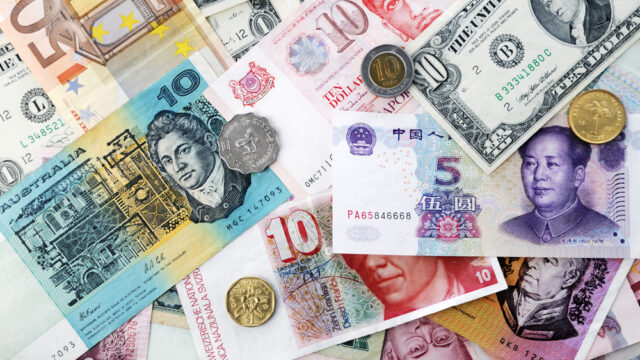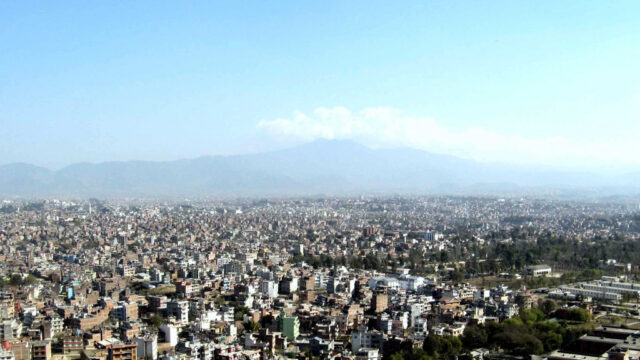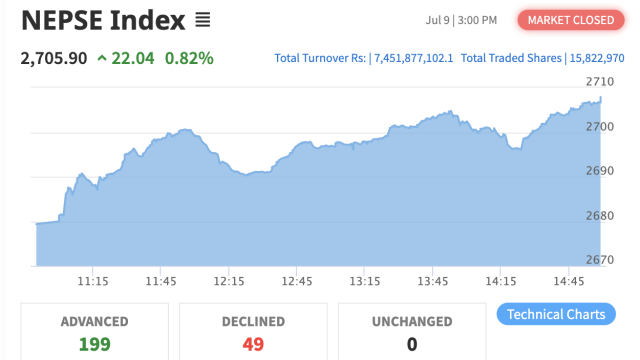Nepal Rastra Bank (NRB) has announced the foreign exchange rates for today, setting new benchmarks for various international currencies against the Nepalese Rupee. These rates, determined by the central bank, play a crucial role in the country’s financial market, impacting trade, remittances, and foreign transactions.
According to Nepal Rastra Bank, the buying rate for one U.S. Dollar (USD) is set at NPR 136.46, while the selling rate stands at NPR 137.06. The exchange rate for the Euro (EUR) has been fixed at NPR 147.76 for buying and NPR 148.41 for selling. Similarly, the British Pound Sterling (GBP) is being traded at NPR 176.61 for buying and NPR 177.38 for selling, reflecting minor fluctuations in the international currency market.
The exchange rate for the Swiss Franc (CHF) has been determined at NPR 154.99 for buying and NPR 155.67 for selling. Meanwhile, the Australian Dollar (AUD) is valued at NPR 85.80 for buying and NPR 86.18 for selling, and the Canadian Dollar (CAD) stands at NPR 95.30 for buying and NPR 95.72 for selling. These variations indicate the impact of global market trends and demand-supply dynamics.

Among Asian currencies, the Singapore Dollar (SGD) is being exchanged at NPR 101.65 for buying and NPR 102.09 for selling. The Japanese Yen (JPY) is set at NPR 9.11 for buying and NPR 9.15 for selling per 10 units, while the Chinese Yuan (CNY) is trading at NPR 18.79 for buying and NPR 18.87 for selling per unit.
The Gulf region’s key currencies have also been updated, with the Saudi Arabian Riyal (SAR) fixed at NPR 36.38 for buying and NPR 36.54 for selling, while the Qatari Riyal (QAR) stands at NPR 37.44 for buying and NPR 37.60 for selling. The exchange rate for the United Arab Emirates Dirham (AED) has been set at NPR 37.15 for buying and NPR 37.32 for selling, reflecting stable economic ties between Nepal and these countries, which are major sources of remittances.
Additionally, the exchange rate for the Thai Baht (THB) has been determined at NPR 4.02 for buying and NPR 4.04 for selling. The Malaysian Ringgit (MYR) is valued at NPR 30.75 for buying and NPR 30.89 for selling. Meanwhile, the South Korean Won (KRW) per 100 units is being exchanged at NPR 9.28 for buying and NPR 9.32 for selling, whereas the Swedish Krona (SEK) has been fixed at NPR 13.64 for buying and NPR 13.70 for selling. The Danish Krone (DKK) exchange rate stands at NPR 19.80 for buying and NPR 19.89 for selling.
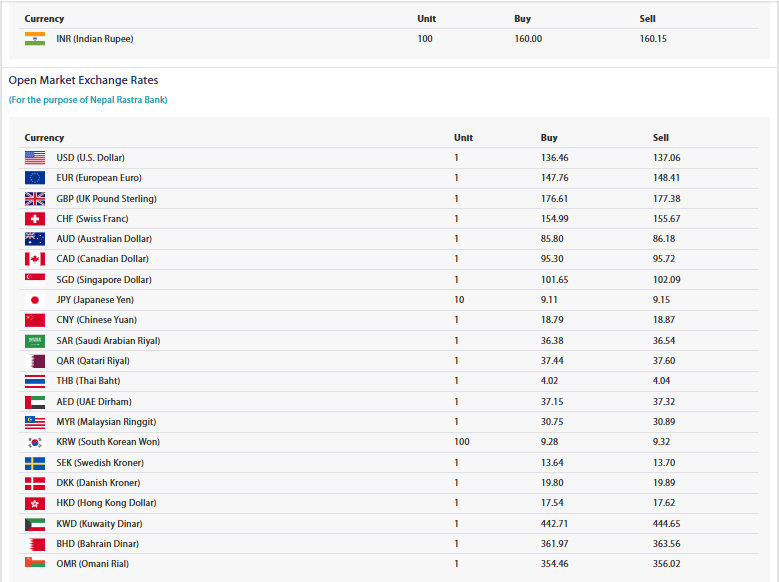
Furthermore, the exchange rate for the Hong Kong Dollar (HKD) has been determined at NPR 17.54 for buying and NPR 17.62 for selling. Among Middle Eastern currencies, the Kuwaiti Dinar (KWD) remains one of the highest-valued currencies, with an exchange rate of NPR 442.71 for buying and NPR 444.65 for selling. Similarly, the Bahraini Dinar (BHD) is set at NPR 361.97 for buying and NPR 363.56 for selling, while the Omani Rial (OMR) stands at NPR 354.46 for buying and NPR 356.02 for selling.
For Indian currency (INR), Nepal Rastra Bank has fixed the exchange rate at NPR 160.00 for buying and NPR 160.15 for selling per INR 100. The fixed exchange rate between Nepalese Rupees and Indian Rupees plays a vital role in bilateral trade and financial stability, as India is Nepal’s largest trading partner.
Nepal Rastra Bank has stated that these exchange rates are subject to change at any time as per market fluctuations and economic conditions. Commercial banks may set their own exchange rates within the parameters provided by NRB, and the latest updates on exchange rates will always be available on the central bank’s official website.
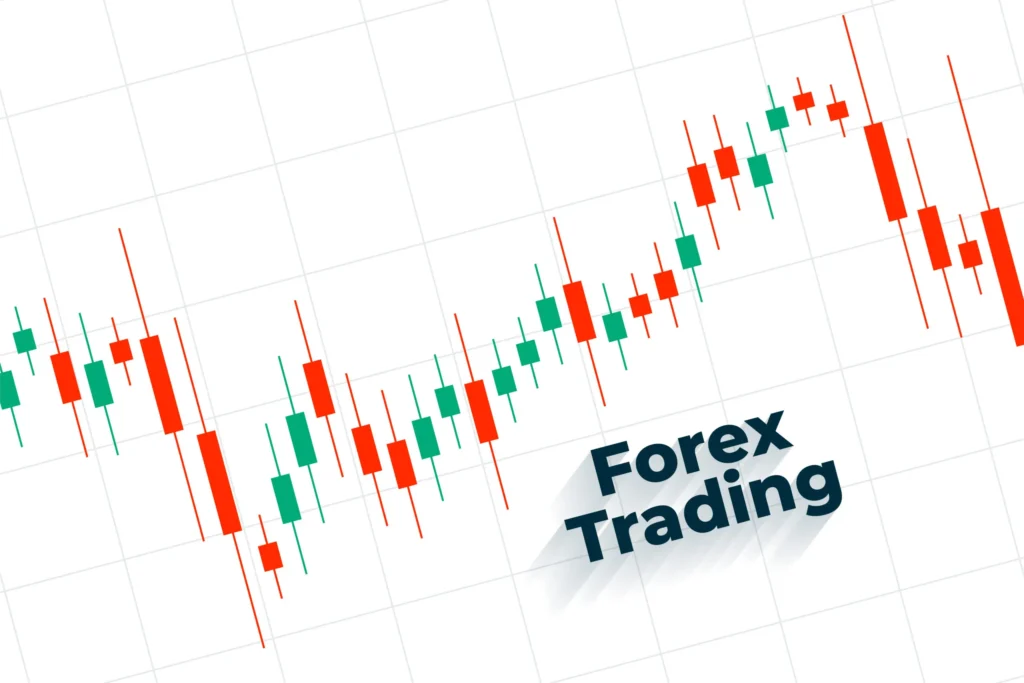
The announcement of foreign exchange rates by Nepal Rastra Bank serves as a guideline for financial institutions, traders, and individuals involved in foreign transactions. As Nepal’s economy heavily relies on remittances, tourism, and international trade, currency exchange rates play a crucial role in determining economic activities and investment decisions. Market analysts suggest that fluctuations in foreign exchange rates are influenced by global economic trends, geopolitical developments, and supply-demand factors in the financial markets.
With Nepal’s increasing involvement in international trade and the rise in foreign remittances, monitoring exchange rate trends is essential for businesses and individuals dealing with international financial transactions. Nepal Rastra Bank continues to regulate and stabilize foreign exchange policies to maintain economic balance and facilitate smoother monetary transactions in the country.
For real-time updates and further information on foreign exchange rates, individuals and businesses can visit the official website of Nepal Rastra Bank. Financial experts recommend that those dealing with significant foreign currency transactions stay informed about the exchange rate trends to make well-informed financial decisions.

